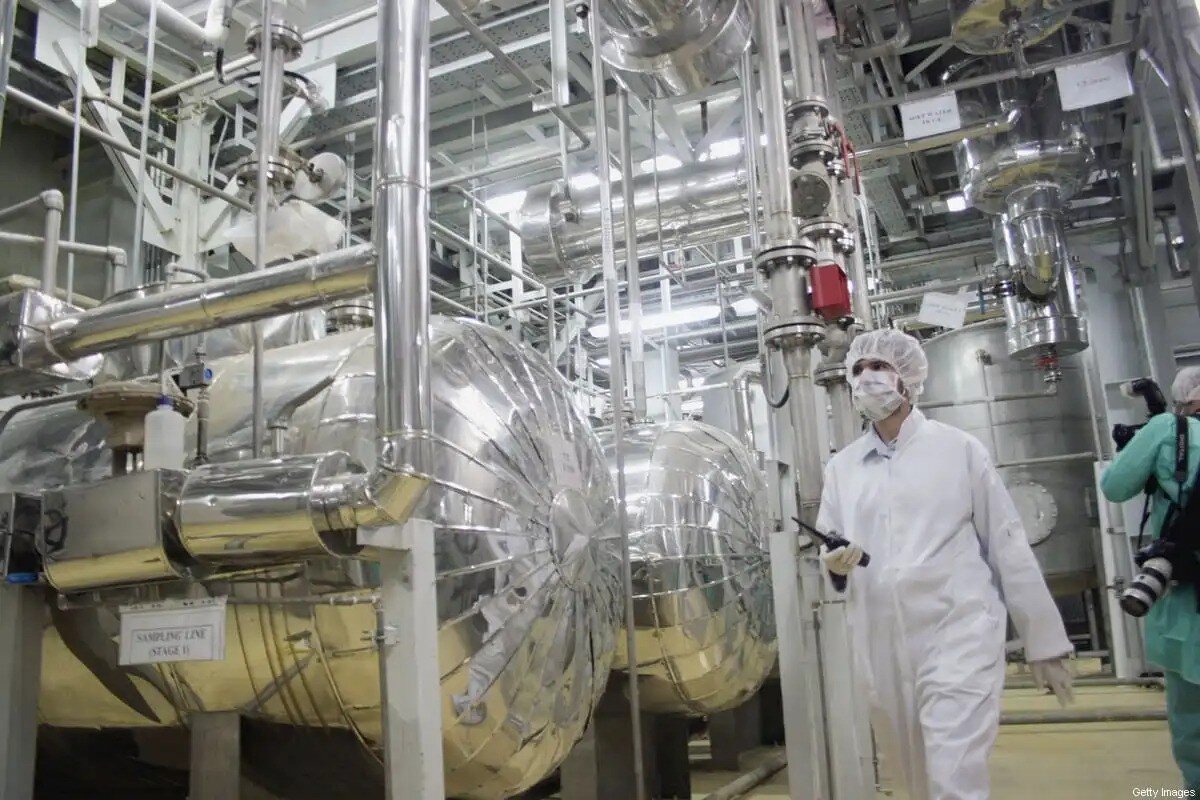Iran uranium stock enriched to 60% shrinks: IAEA

TEHRAN - The UN nuclear watchdog issued a report on Monday alleging that Iran’s stock of uranium has shrunk.
The report purportedly said that the stockpile has dwindled below the theoretical threshold at which it could produce three atom bombs.
According to two confidential quarterly reports to member states, the International Atomic Energy Agency (IAEA) said in the report that Tehran has diluted its enriched stockpile more than it produced over the last three months.
Surprisingly, the IAEA failed to cast light on the reasons for the so-called downblending of 31.8 kg of material enriched to up to 60%, after which the stock fell by an estimated 6.8 kg since the last such quarterly reports to 121.5 kg.
A top diplomat, familiar with the issue, said, “At the beginning of the year they decided to do a downblending ... A couple of weeks later they did another downblending, this time with a smaller amount.”
The diplomat claimed that “Iran slowed its enrichment of uranium to up to 60% purity last year which was probably the result of secret talks between Washington and Tehran that led to the release of U.S. citizens held in Iran.”
The Iranian officials have invariably denied all bogus allegations leveled by certain Western powers to pin the blame on Tehran.
Last year, the IAEA Director General Rafael Grossi asserted that “Iran does not possess nuclear weapons.”
“Iran does not have nuclear weapons. A distinction must be made between having nuclear weapons and being able to create them,” Grossi said at a meeting of the Swedish Institute of International Affairs.
Grossi went on to say that in 2015 Iran and world powers reached an agreement, officially known as the Joint Comprehensive Plan of Action (JCPOA), but the United States withdrew from it in 2018.
Grossi also noted that “the American move triggered Iran to abandon obligations over time. Although this agreement has not been declared dead, it has become an empty shell.”
The UN nuclear chief added that “Iran has the nuclear materials necessary for several nuclear weapons, but I must emphasize that Iran currently does not have any nuclear weapons.”
“We must distinguish between having nuclear weapons and having the ability to make them. This is a very important issue. It is important to get to a point where this program is stable and the diplomatic and system conditions are in place to ensure it,” Grossi remarked.
In the same year, the spokesman for Iran’s Foreign Ministry responded to a joint statement issued by the United States and three European countries concerning Iran’s nuclear program, emphasizing that Tehran’s nuclear activities comply with international rules and regulations.
Nasser Kanaani denounced remarks by Britain, France, Germany and the U.S. regarding Iran’s nuclear program, saying that Iran’s activities are “entirely peaceful.”
Western powers condemned Iran for “escalation” of its nuclear program after the UN watchdog said Tehran had upped its high-grade uranium enrichment.
Kanaani emphasized, "As reiterated many times, the nuclear program of the Islamic Republic of Iran has always been and will remain peaceful."
The spokesman remarked, "It's quite amusing that the countries responsible for the current situation regarding Iran's nuclear program are attempting to shift blame and victimhood with a heart detached from reality."
He stressed that Tehran’s nuclear activities comply with international rules and regulations, adding that enriching uranium up to 60% has been a routine at Iranian nuclear facilities.
Kanaani suggested, "These countries would be better off reviewing their performance in the past two years in the negotiations for lifting sanctions and observing the outcome of their unconstructive policies."
It is not the first time that Western countries along with the Israeli regime blamed Iran for its civilian nuclear program.
On Monday, the Washington Times published an article that took everyone by surprise, alleging that Tehran “may already have five nuclear bombs and may have as many as a dozen by May.”
The article purportedly stated that “certain intelligence estimates, as early as this past October, asserted that Iran could have enough enriched weapons-grade uranium for one bomb within a week and enough for five nuclear bombs within six weeks. It has been more than three months since those estimates were made.”
Iran has kept its word not to build the bomb. It is the West that should be blamed for reneging on its promises in the JCPOA.
In 2018, former U.S. President Donald Trump ditched the nuclear pact, under which Iran curbed its uranium enrichment work in exchange for termination of economic sanctions.
In reaction to Washington’s withdrawal and its re-imposition of harsh sanctions, Tehran warned of dwindling the pact’s nuclear restrictions.
Back in 2023, Iran accused Prime Minister Benjamin Netanyahu of issuing a threat in his UN General Assembly speech to utilize nuclear weapons against the Islamic Republic.
Tehran’s ambassador to the United Nations, Amir Saeid Iravani, sent a letter of complaint to the UN secretary general and the presidents of the General Assembly and the Security Council expressing “strong condemnation” of Netanyahu’s address.
Iravani noted the “alarming and serious threat by the prime minister of the Israeli regime to make use of nuclear weapons against Iran.”
All Iranian officials have vehemently disavowed the spurious claims of Iran building a nuclear bomb, referring to a fatwa issued by the Leader of the Islamic Revolution Ayatollah Seyed Ali Khamenei in the early 2000s, banning the development of nuclear weapons.
Leave a Comment